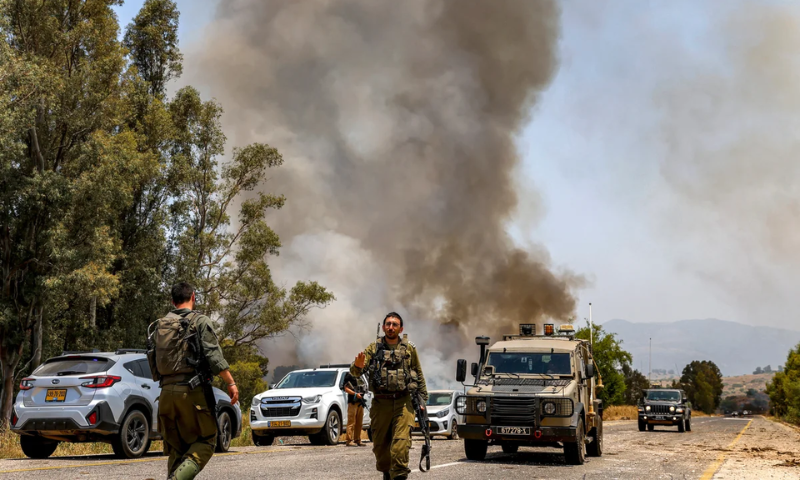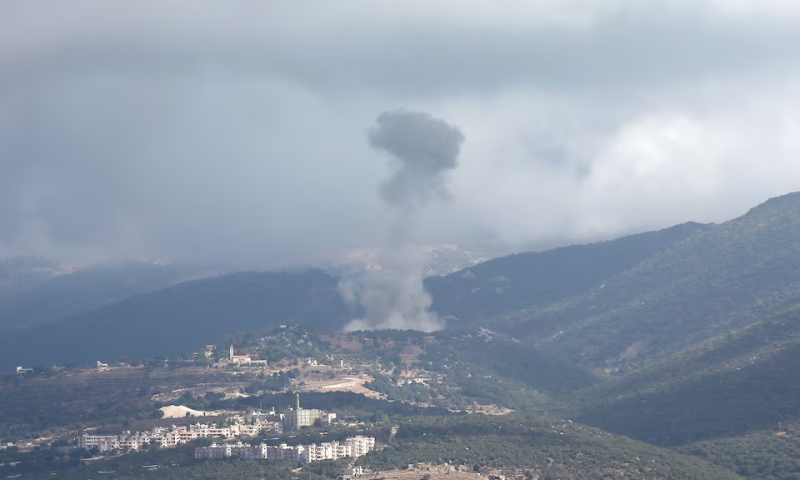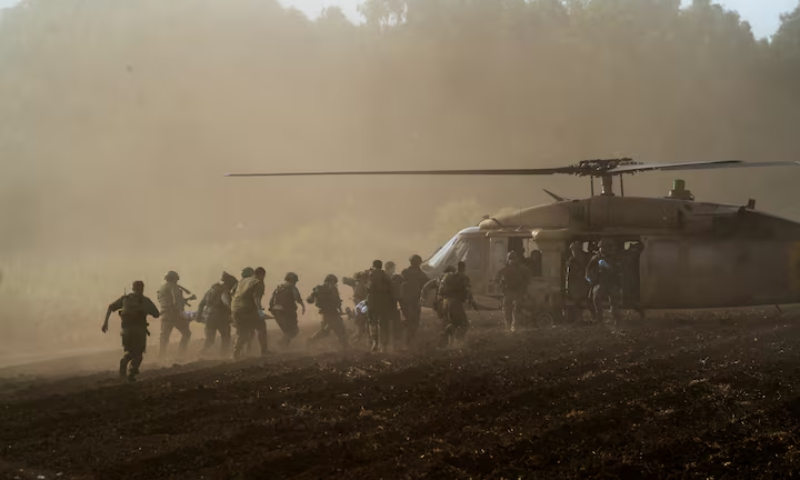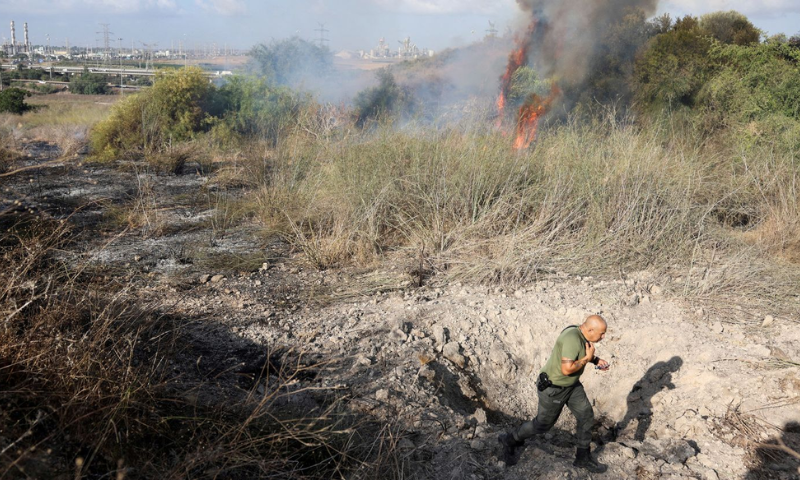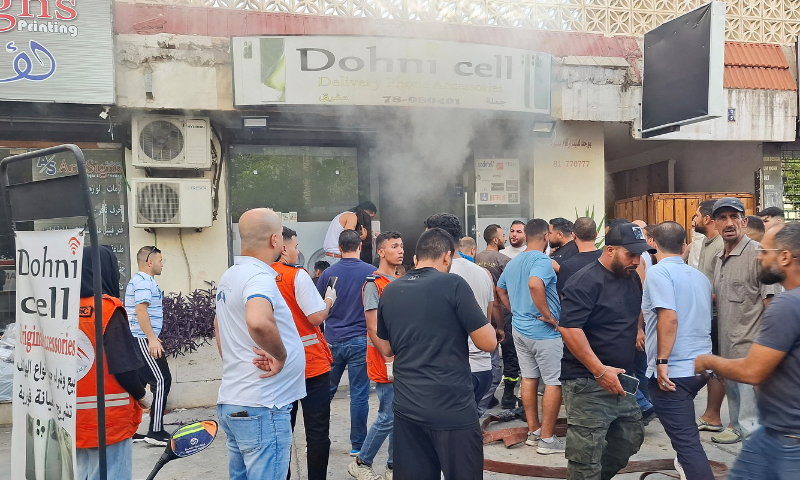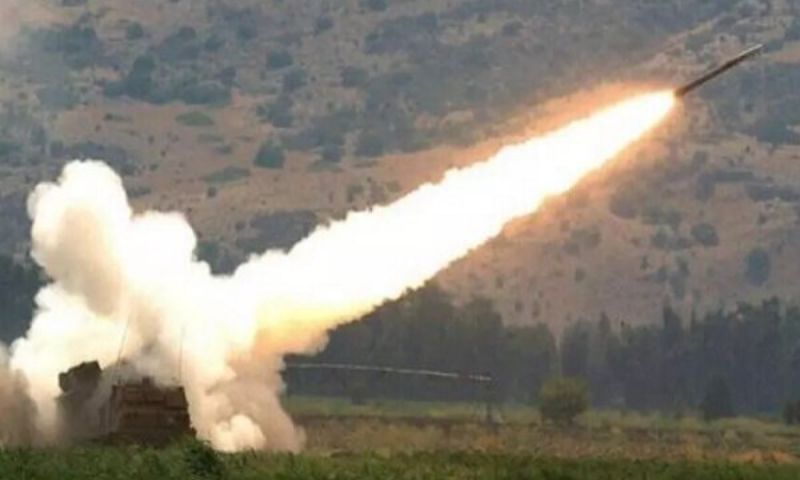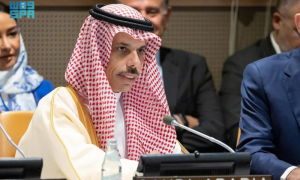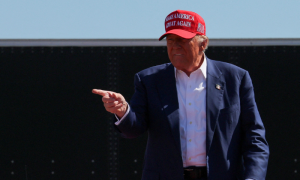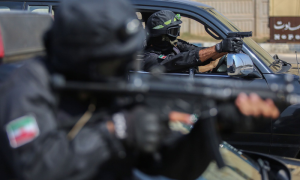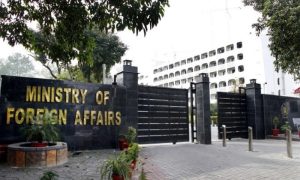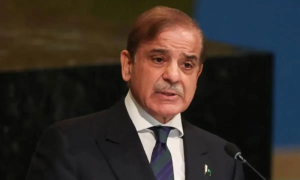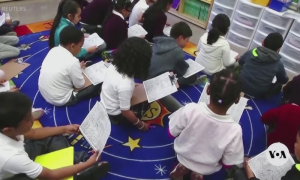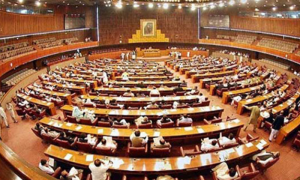PARIS: As the Gaza war is feared to escalate into a wider regional conflict, world powers on Sunday urged Israel and Lebanon’s Hezbollah movement to avoid escalating their conflict to spill over across the Middle East.
Hezbollah and Israeli forces have traded regular cross-border fire since October 8.
UN Secretary-General Antonio Guterres expressed grave concerns over the potential transformation of Lebanon into “another Gaza,” highlighting the dire consequences of ongoing violence.
In an interview with CNN ahead of the UN General Assembly’s annual gathering, Guterres said that neither Israel nor Hamas appeared interested in pursuing a ceasefire, stating, “It is clear that neither the government of Israel nor Hamas really want a ceasefire. And that is a tragedy, because this is a war that must stop.”
Guterres noted that the continuous military confrontations pose a severe threat to Lebanon’s stability, warning, “What concerns me is the possibility of transforming Lebanon into another Gaza.”
The UN’s special coordinator for Lebanon, Jeanine Hennis-Plasschaert, warned on social media platform X that the Middle East is on the brink of “an imminent catastrophe,” emphasizing that military solutions would not bring safety to either side.
The situation escalated further this week, with Israeli airstrikes in Lebanon resulting in the deaths of at least 45 people, including prominent Hezbollah commanders.
White House National Security spokesman John Kirby said that escalating the conflict is not in the best interest of Israel, a key ally of the United States.
Speaking on ABC, he reiterated that the US is actively encouraging diplomatic solutions and believes there remains “time and space” for negotiations. He said, “The tensions are much higher now than they were even just a few days ago.”
Kirby reiterated the US commitment to seeking a diplomatic solution to the conflict, stating, “We still believe that there can be time and space for a diplomatic solution here and that’s what we’re working on.” The White House has been actively trying to prevent further escalation since the onset of the conflict on October 8.
The European Union has expressed extreme concern regarding the rising violence, with its foreign policy chief, Josep Borrell, calling for an “urgent” ceasefire. He stated that a full-blown war “must be averted, including by renewed intense diplomatic mediation efforts.”
British Foreign Secretary David Lammy also urged for an immediate ceasefire between Israel and Hezbollah, characterizing the recent escalation as “worrying.” Speaking at his party’s annual conference, Lammy stressed that a ceasefire would facilitate a political settlement, allowing civilians on both sides to return home and live in peace and security.
The situation escalated significantly over the weekend, with Hezbollah launching intense rocket fire into northern Israel, prompting hundreds of thousands of residents to seek shelter.
Hezbollah’s Sunday’s rockets attack follows an Israeli airstrike on Beirut on Friday that killed 45 people, including several Hezbollah commanders. Earlier this week, deadly explosions from communication devices across Lebanon left 39 dead and nearly 3,000 wounded.
Earlier on Sunday, Hezbollah said that it had targeted military production facilities and an air base in northern Israel, near Haifa after a series of Israeli strikes on southern Lebanon that have intensified tensions in the region.
In a statement, Hezbollah confirmed the firing of “dozens” of rockets, including Katyusha and Fadi-1 and Fadi-2 types, at military complexes, associated with the Rafael Advanced Defense Systems and the Ramat David air base, located approximately 45 kilometers (28 miles) from the Lebanese border.
The strikes were in retaliation to Israeli attacks earlier in the week, which killed several civilians in Lebanon.
“In an initial response” to the explosions of pagers and two-way radios on Tuesday and Wednesday, Hezbollah “bombed the Rafael military industry complexes” in northern Israel with “dozens” of rockets, the Lebanese group said. The Ramat David site is among the deepest inside Israeli territory that Hezbollah has said it has targeted.
The Rafael site and the air base both appeared in drone footage the Lebanese group released in recent months, in videos seen as a potential bank of targets for Hezbollah in case of widening conflict.
The Israeli military reported that more than 100 projectiles had been launched from Lebanon on Sunday, causing widespread damage, particularly in Haifa, where buildings were set ablaze and shrapnel pocked vehicles.
On Saturday, the Israeli army claimed it was “attacking widely in southern Lebanon following the identification of Hezbollah’s preparations to fire into Israeli territory”. It had also said its aircraft “struck thousands of launcher barrels that were ready for immediate use to fire toward Israeli territory”.
READ ALSO: Israel Kills Top Hezbollah Leader in Beirut Strike
Prime Minister Benjamin Netanyahu stated that Israel had dealt significant blows to Hezbollah, asserting that “no country can tolerate attacks on its citizens.”
The Israeli military responded to Hezbollah’s rocket fire with airstrikes targeting multiple locations in southern Lebanon, while Israeli civil defence agencies advised residents in northern Israel to seek shelter.
Netanyahu vowed to restore security to northern Israel and ensure the safe return of displaced residents. In the aftermath of the Israeli airstrike on Friday, which killed Ibrahim Aqil, head of Hezbollah’s elite Radwan Force, the group indicated it would retaliate for what it termed an unprecedented attack.
The overnight Hezbollah rocket fire reached Kiryat Bialik on the edge of north Israel’s major city Haifa, leaving a building in flames, another pockmarked with shrapnel, and vehicles burnt.
Israel has signalled its intention to turn its focus to Hezbollah after nearly a year of cross-border fire that began in October in what Hezbollah calls support for Hamas group fighting Israel.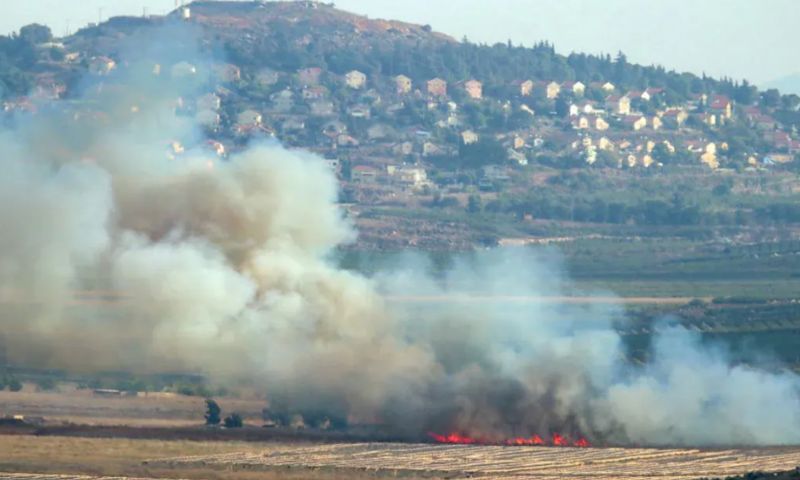
The Israeli army said over 150 missiles, rockets and drones had been fired at its territory during the night and early on Sunday morning, most from Lebanon.
The military claimed it launched strikes in southern Lebanon on Hezbollah targets in response to the rocket fire and, according to spokesman Nadav Shoshani. Israel’s civil defence agency ordered all schools in the north closed after the rocket fire.
Hezbollah said it had targeted Israeli military production facilities and an air base in the Haifa area after the communication device blasts on Tuesday and Wednesday that killed 39 and wounded almost 3,000.









